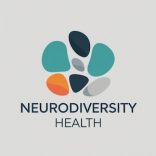FAQs
1) How does an online ADHD or ASD assessment work?
We combine secure pre-assessment questionnaires, a detailed clinical interview by qualified clinicians, and (where appropriate) collateral history (e.g., school reports, partner/parent input). Our process follows UK guidance (e.g., NICE for ADHD; DSM-5/ICD-11 tools in autism pathways). We’ll guide you from screening to diagnosis and next steps.
2) Is an online assessment as thorough as an in-person one?
When delivered by appropriately trained clinicians using validated tools and multi-source information, online assessments can be robust. (Example: Psicon explains their assessments comply with NICE guidance; independent pieces also note promising accuracy for validated online tools.) We ensure the same standards remotely as in clinic.
3) Will my diagnosis be accepted by the NHS, university, or employer?
Neurodiversity Health issues comprehensive reports aligned to UK standards to support reasonable adjustments and care planning; NHS acceptance can vary by Trust. We’ll provide the documentation you need an liaise with your GP.
4) Do you offer Right to Choose (RTC)?
Neurodiversity Health is a private service; we can advise on pathways and provide clinical information your GP may need, but RTC availability depends on the NHS provider’s status and your local ICB. Currently Neurodiversity Health does not support RTC, however we plan to do offer this service future.
5) What if I’m unsure whether it’s ADHD, autism, or both?
It’s common for traits to overlap. We assess for ADHD, autism, or combined presentations. Our assessments will help you decide the best route at triage to avoid duplicate steps and cost.
6) What happens if my assessment does not confirm a diagnosis?
Should your assessment results in no diagnosis, you’ll receive a clear clinical formulation explaining the findings and next-step recommendations (e.g., alternative explanations, supports, or referrals). We believe good care means useful answers — not just labels.
7) Do you prescribe medication if I’m diagnosed with ADHD?
Following diagnosis, a separate medication initiation/titration pathway can be offered when clinically indicated and appropriate. We’ll discuss benefits/risks, monitoring, and how private prescribing works, and we’ll support handover to your GP if a shared-care arrangement is available locally.
8) Are online questionnaires “enough” to diagnose ADHD or autism?
No single checklist is sufficient. Checklists are screening tools; diagnosis requires clinical evaluation and developmental history. We use screening to inform, not replace, the assessment.
9) Can you assess children and adults? Is the process different?
Yes — we assess children and adults. Steps differ (e.g., school input and observations in children; adult developmental history sources vary).
10) How long will it take and what about wait times?
We are still preparing our service and it has not been launched yet. Eliminating wait times is one of our main objectives.
11) Is my data secure?
Yes. We use encrypted platforms, store only necessary information, and follow UK data-protection law (UK GDPR).
12) Do I need a GP referral to be seen privately?
You can self-refer to Neurodiversity Health. A GP referral is helpful for medical history and for later shared-care discussions but isn’t mandatory for private assessment. Some NHS pathways do require GP referral; private clinics typically allow self-referral.
